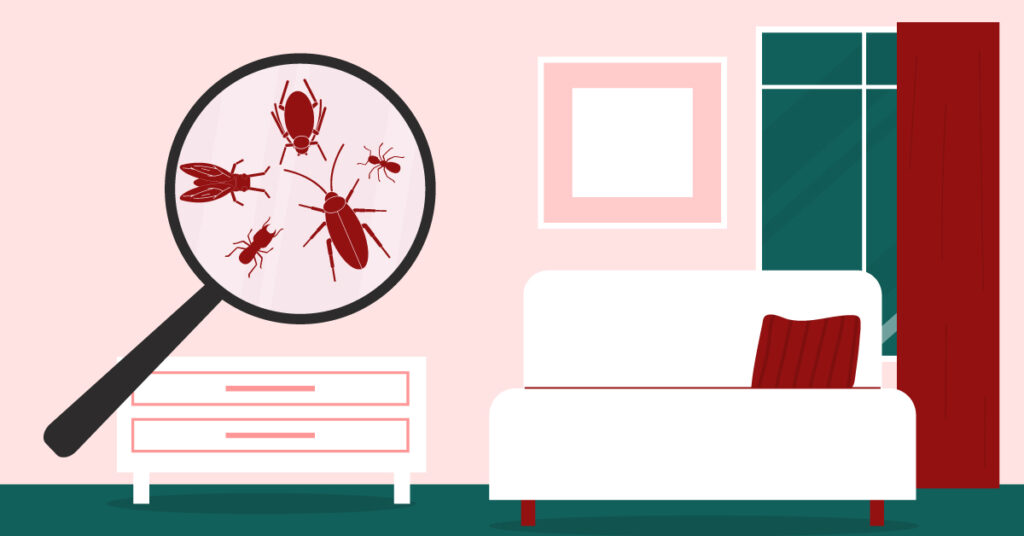Ant infestations can be annoying for any homeowner, especially during warmer months when these tiny invaders are most active. While chemical pesticides are available and can be effective, they often come with health risks and environmental concerns.
Fortunately, there are numerous natural solutions for keeping your home free of ants. These methods are safe, eco-friendly, and can be just as effective as conventional pesticides.
Understanding Ant Behavior

Before diving into natural ant control methods, it’s essential to understand why ants invade our homes in the first place.
Like any pest, they usually enter homes in search of food, water, and shelter. Once they find a food source, they leave a unique chemical trail for fellow ants to follow, leading to a full-blown infestation. By disrupting these trails and removing the attractants, you can effectively prevent and eliminate ant infestations.
1. Keep Your Home Clean
The most straightforward and effective way to prevent ants is to maintain a clean home. Regularly cleaning surfaces, floors, and storage areas can eliminate potential food sources that attract ants.
Key Areas to Focus On:
- Kitchen: Wipe down countertops, sweep floors, and clean up spills immediately. Store foods, especially anything that has already been open, in airtight containers and regularly dispose of garbage.
- Bathrooms: Keep sinks and countertops dry, as ants are also attracted to moisture.
- Dining Areas: Vacuum or sweep up crumbs and spills after meals.
2. Seal Entry Points
Ants enter your home through teeny tiny cracks and gaps in doors, windows, and walls. Sealing these entry points prevents ants and other pests from gaining access to your home.
Steps to Take:
- Inspect and Repair: Regularly inspect your home’s exterior and interior for cracks, gaps, and holes. Seal these entry points with caulk.
- Replace Worn Seals: Ensure that door sweeps and window seals are in good condition and replace them if necessary.
3. Use Natural Repellents
Several natural substances can repel ants and prevent them from entering your home. These repellents are safe for both humans and pets and can be easily found in most households.
Effective Natural Repellents:
- Vinegar: Mix equal parts water and white vinegar in a spray bottle and use it to wipe down surfaces. The strong smell disrupts ant trails and deters them from returning.
- Lemon Juice: Similar to vinegar, lemon juice can be used as a natural deterrent. Spray it on entry points and areas where ants are commonly seen.
- Essential Oils: Peppermint, tea tree, and eucalyptus oils are known to repel ants. Mix a few drops with water and spray it around your home’s entry points and infested areas.
4. Create Ant Barriers
Creating barriers with natural substances can help prevent ants from crossing into your home. These barriers disrupt the ants’ chemical trails and deter them from entering.
Common Barriers:
- Cinnamon: Sprinkle ground cinnamon or place cinnamon sticks near entry points and infested areas.
- Diatomaceous Earth: Made from fossilized algae, this powder is safe for humans and pets. Sprinkle it around the perimeter of your home and in areas where ants are seen.
- Coffee Grounds: Used coffee grounds can be spread around entry points and along ant trails to deter ants.
5. Eliminate Food Sources
Ants are primarily attracted to food, so removing potential food sources can help prevent infestations. Pay particular attention to the following:
Food Storage Tips:
- Airtight Containers: Store food in airtight containers, especially sugary and starchy items.
- Refrigerate: Keep perishable items in the refrigerator rather than on countertops.
- Clean Pet Areas: Ensure pet food bowls are cleaned regularly and store pet food in sealed containers.
6. Use Natural Ant Baits
Natural ant baits can help eliminate ants by attracting them to a bait that contains a natural insecticide. The ants get it on them and carry the bait back to their colony, which kills the entire colony over time.
Homemade Ant Baits:
- Borax and Sugar: Mixing equal parts of borax and sugar with water creates a paste. Place the bait in areas where ants are seen. The sugar will attract ants, while the borax acts as a natural insecticide.
- Baking Soda and Powdered Sugar: Mixing equal parts baking soda and powdered sugar, attracts the ants, and the baking soda reacts with the ants’ digestive systems, killing them.
7. Maintain Outdoor Areas
Keeping the outside of your home clean and well-maintained can prevent ants from finding a way inside. Regularly inspect and maintain your outdoor spaces to reduce the likelihood of ant infestations.
Outdoor Maintenance Tips:
- Trim Vegetation: Keep trees, shrubs, and plants trimmed away from your home’s exterior to reduce the number of potential entry points.
- Remove Debris: Clear away leaf litter, wood piles, and other debris from around your home’s foundation.
- Control Moisture: Ensure that gutters and downspouts are functioning correctly to prevent water buildup around your home’s foundation.
8. Use Ant-Repelling Plants
Certain plants are known to repel ants and can be strategically placed around your home to deter them. These plants can be used both indoors and outdoors to create a natural barrier against ants.
Ant-Repelling Plants:
- Mint: Planting mint outside your home or keeping potted mint plants indoors.
- Lavender: Lavender plants can be placed near entry points or used indoors to repel ants.
- Rosemary: Plant rosemary in your garden or keep potted rosemary plants in your kitchen to deter ants.
9. Monitor and Act Quickly
Regularly monitoring and taking quick action are key to preventing and controlling ant infestations. Keep an eye out for early signs of ant activity and take immediate steps to address the problem.
Monitoring Tips:
- Check Regularly: Inspect common ant entry points and areas where ants are likely to be found, such as kitchens and bathrooms.
- Act Fast: If you notice ants, clean the area immediately, remove food sources, and apply natural repellents or barriers.
Bye, Bye Ants
Keeping your home free of ants doesn’t have to involve harsh chemicals and pesticides. By understanding ant behavior and implementing natural solutions, you can effectively prevent and control ant infestations. Maintaining a clean home, sealing entry points, using natural repellents, creating barriers, and eliminating food sources are all effective strategies.
Additionally, regular monitoring and prompt action can help ensure that your home remains ant-free. These natural methods are safe, eco-friendly, and can provide long-lasting results, allowing you to enjoy a pest-free home all year round.
You might also be interested in: How To Get Rid Of Sugar Ants [5 Natural Remedies]




